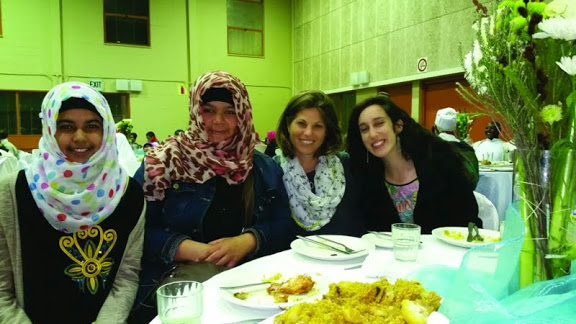
In the midst of the challenges surrounding Israel’s Operation Protective Edge, members of the Cape Board and Netzer attended an iftaar (Ramadan Breaking the Fast meal) with 200 members of the Muslim community in the Bo Kaap.
The event was hosted by the Muslim Youth Movement (MYM), which has a focus on education and advocacy, socioeconomic development and gender justice. Believing that there was much ignorance about the beliefs of other faiths, the organisers wanted to show the MYM members that fasting was not unique to their religion, and asked me to invite a rabbi to speak about the significance of fasting for Jews.
Rabbi Arthur Knopf from the Camps Bay synagogue agreed to do so. Much applause met Rabbi Knopf’s talk about the variety and meanings of our fasts. Other speakers at the event were Imam Rashied Omar, Elizabeth Peterson (director of SAFFI), and former Mayor Dan Plato, now Provincial Minister for Community Safety. The warmth of the reception and hospitality — with kosher food specifically provided for the Jewish guests — was a testimony to an island of sanity within the ugly madness that had been spreading during the preceding week. One tends to get caught up in the extremist rhetoric, forgetting that in all communities there is a large majority that wants to live in amity and peace with their neighbours.
Sitting at Cape Board Executive Director David Jacobson’s table was a young man who was amazed to learn that David was Jewish. “I have always viewed Jews with suspicion”, he told David, and they then proceeded to have an amicable discussion about Judaism and faith and prejudice, discovering that they could communicate well as fellow South Africans.
This is the great thing about such an event. With 85% of Jewish youth at the Jewish day schools, the chances are great that the only Jews learners from other schools are likely to meet are those shown on television.
Nelson Mandela said that “No one is born hating another because of the colour of his skin, or his background or his religion. People must learn to hate, and if they can learn to hate, they can be taught to love, for love comes more naturally to the human heart than its opposite.” Events like this iftaar give one the opportunity to learn if not to love, at least not to hate, the ‘other’.











